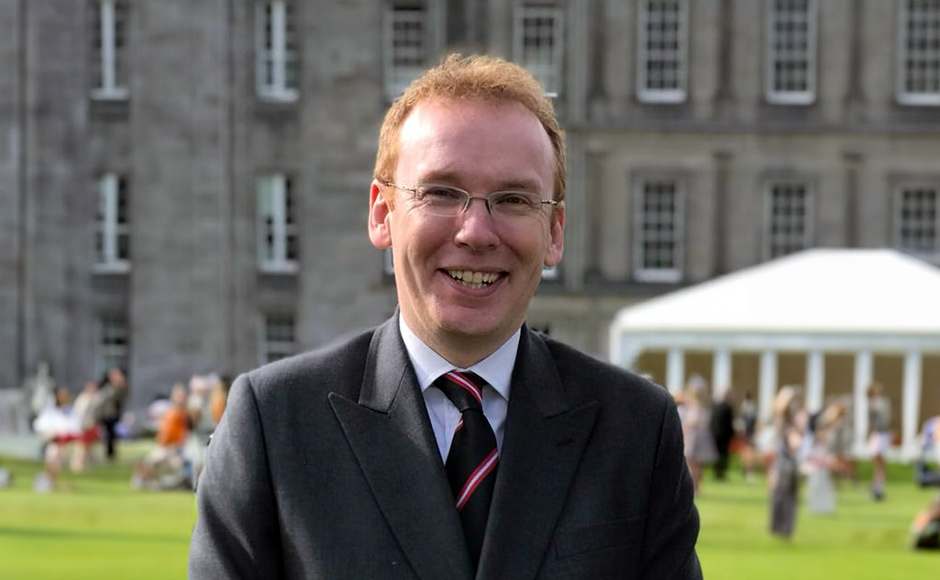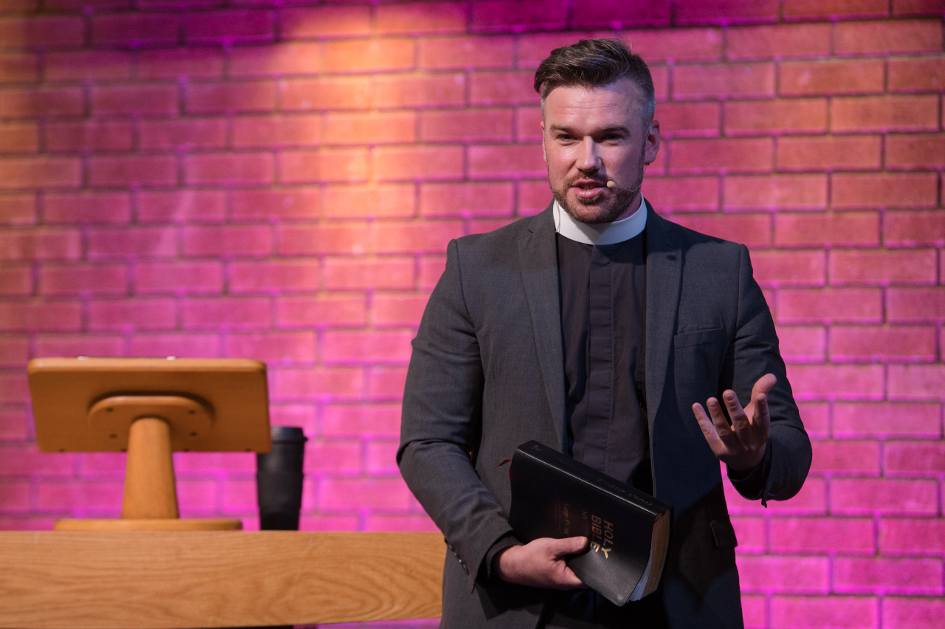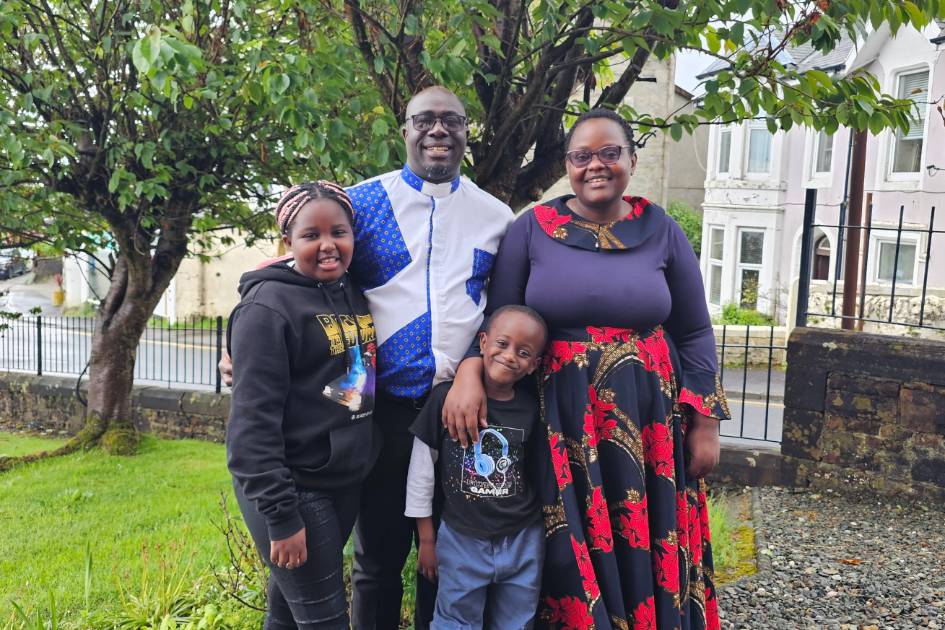Bringing the threads together
Published on 16 May 2025 7 minutes read
Although ministry has been a constant theme in Rev Doug McRoberts' life, it has not been the only one.
His Christian ministry has evolved alongside a career as a broadcaster with the BBC and later as a communications specialist at the highest level of the UK and international nuclear industry, before he returned to parish ministry and all the threads of his past experience came together on the island of Malta as it faced an unprecedented refugee crisis.
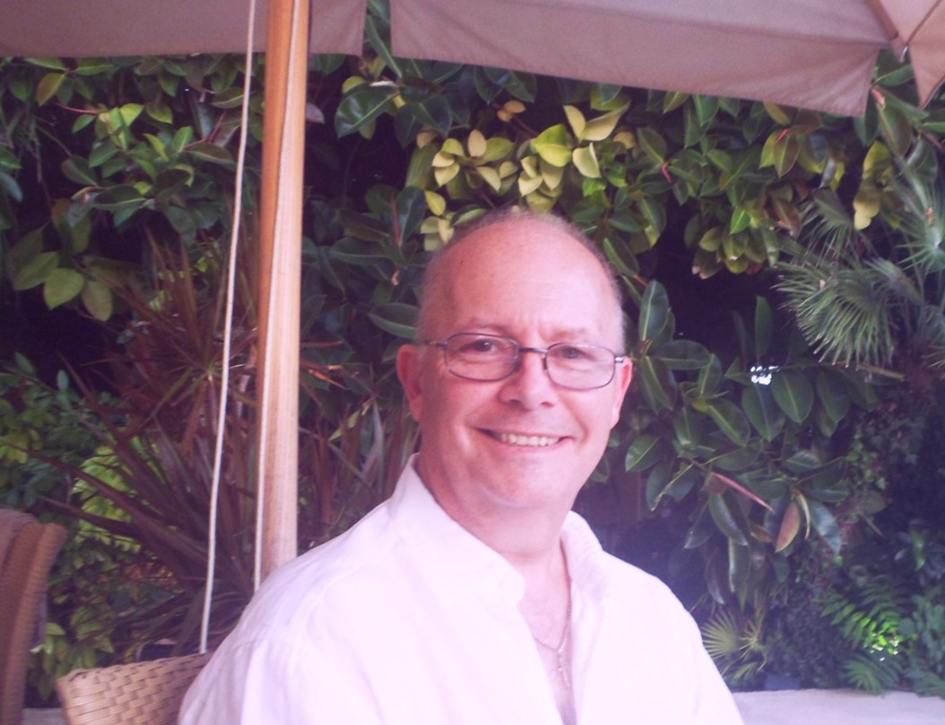
Speaking as part of our regular Talking Ministry series, Mr McRoberts recalls his faith growing at Scripture Union and Bible camps as a teenager in Glasgow.
A talk by the Missionary Aviation Fellowship in his fifth year particular grabbed his attention given the combination of his growing Christian faith and passion for aviation – he would later go on to write a book about 602 (City of Glasgow) Squadron, the RAF's most successful Spitfire squadron.
"The idea of somehow serving Christ and flying seemed really good to me," he admitted.
Two years into his Glasgow University degree, he switched to studying Divinity with an aim of becoming a Church of Scotland minister, while at the same time pursuing all his other interests: sport – particularly hockey – electronics, which led him into student broadcasting, and music.
That led to the formation of Christian rock band White Light, alongside his younger brother Dave and two friends, David Murdoch and Alex Smith.
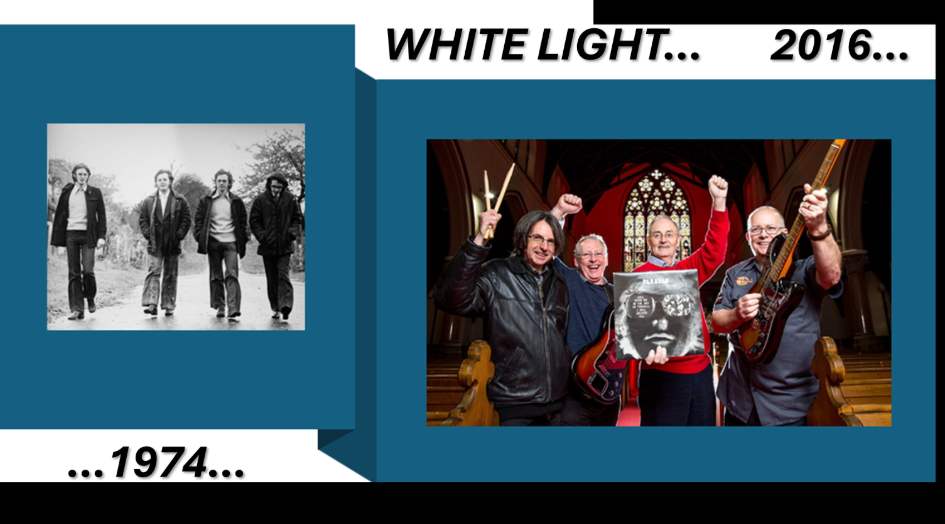
The band enjoyed success even beyond Christian music circles, becoming runner up in a national competition run by music paper Melody Maker and filling out Aberdeen Music Hall on a memorable weekend when they outsold the following night's act, hard rock legends Deep Purple.
In 1974 White Light recorded an album, Parable, which went on to have an unexpected revival some decades later after being listed as one of the world's rarest records, prompting its re-release on a Spanish record label.
"The reason for the record in the first place was to get the Word of God out there and, in 2016, the word was out there again," Mr McRoberts observed.
A year after the release of Parable, he was ordained as an assistant Minister of Word and Sacrament in East Kilbride and will celebrate the 50th anniversary of his ordination at Crown Church in Inverness, where he and his wife Lesley now live, next month.
The nuclear option
However, after a spell as a parish minister in Kirkcaldy, he decided to put some of the skills he had learned in student broadcasting to use by joining the BBC as a content producer.
"In 1978 the BBC was expanding in Scotland, I saw an opportunity and they took me," he said.
This brought him to Inverness for the first time where he worked on BBC Radio Highland's morning and lunchtime programmes, while Sundays would still find him preaching in churches in the Inverness area and as far as Dornoch Cathedral, with the lessons of his "day job" feeding into his Christian ministry.
Mr McRoberts explained: "As a professional broadcaster, I learnt from senior editors about how to shape words and use communications opportunities. If that didn't inform my ministry, then I was missing out somewhere."
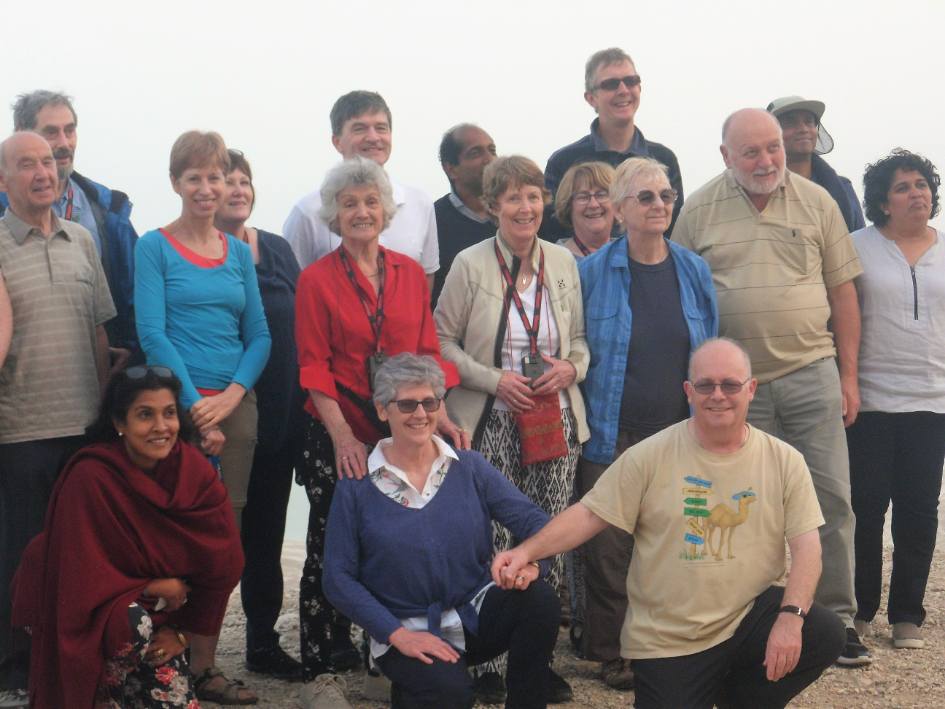
From the BBC he moved to the Atomic Energy Authority (AEA) as media officer at the nuclear power station at Dounreay in Caithness, where he also continued to preach.
That led to his being asked to apply, successfully, to become the chief press officer with AEA leading to a move to Oxfordshire where he was quickly approached by the Methodist Church and invited to join their preaching circuit.
"I was preaching almost every Sunday while also working as the UK AEA's chief press officer in London," he said.
That relationship continued after he moved to Gloucester to become the media relations manager of a new company, Nuclear Electric, before his return to Scotland as the first PR director of British Energy PLC and a return to Church of Scotland ministry.
"In the communications sector, I was now a recognised international operator and I became the only non-French chairman of NUCNET, which is an international non-profit news organisation for the nuclear industry. And yet, at weekends, I was still exercising a Scottish preaching ministry in the Presbytery of Dunfermline," he said.
The strongest sense of call
With no further progression possible in the nuclear sector and the couple's three children grown, he returned to full-time ministry in Keith before his attention was drawn by an advert for a new minster at St Andrew's Church in Malta.
"I discovered it had a very international congregation and was the only joint Church of Scotland and Methodist charge with ministers from each denomination taking it in turn to lead the congregation," he said.
"What was I? A Church of Scotland minister who had worked in Methodist circuits in England and understood that system fully. All these threads from my life up to that point – operating in international communications, preaching every Sunday, seeking to teach people my understanding of God's word – started to draw together.
"This was the strongest sense of call I had ever had. The best way I can express it is not so much that I felt that I needed to apply for this, but that I needed to offer myself for it."

Mr McRoberts was soon to draw on all his past skills and experience as a result of the unrest across North Africa and the Middle East following "the Arab Spring" of 2011. Libya, Malta's near neighbour to the south, was among the worst affected countries, descending into a full-scale civil war. As a result, boatloads of refugees, not only from Libya, but from countries for sub-Saharan Africa to Pakistan, soon began arriving on the Mediterranean island.
"We found ourselves involved in lots of different ways. We had a prayer ministry at a tented city in a former RAF air base. Conditions were absolutely horrendous– imagine the worst and then double it – but we were there every week, exercising ministry and trying our best to help people.
"I'm getting caught in the middle of this as a minister, but I'm also a communications professional – the right guy in the right place at the right time to tell this story to the world.
"I was able to put out prayer letters and stories around the world because of contacts from my previous career. One of the first results was an anonymous donor in the Netherlands sent 10,000 Euros and thanks to him, every refugee in Malta had a quilt that winter."
He and Lesley recently returned to Malta and found the church, which he had been told was in the process of winding down, was still vibrant and buzzing with activity.
"This is God at work and it was such a privilege to be there at that time and be able to help this all come together," he said.
A heart for mission
Mr McRoberts was also able to draw on some of his past experience when he became part of the transition team bringing together 100 congregations in the Highlands and Hebrides in the new presbytery of Clèir Eilean Ì, which covers 40 per cent of Scotland's landmass.
Mr McRoberts, who is now the first Moderator of Clèir Eilean Ì, said: "Quite a lot of that followed from my experience elsewhere, not least seeing how the Methodists operate.
"They have been dealing with a lot of the same problems we have for a long time. They have never had enough ministers, so they have always relied on lay readers and have seen the wisdom of having a professional resource available to help people locally. That is essentially what the new presbyteries are doing throughout Scotland.
"There has been a lot of trauma in getting to where we are now, but Clèir Eilean Ì is part of the resolution of that, not part of the problem. Wherever I go, I meet people with a heart for mission and a willingness to do things in a new way and I find that very encouraging."
Read more on our Talking Ministry Page.
